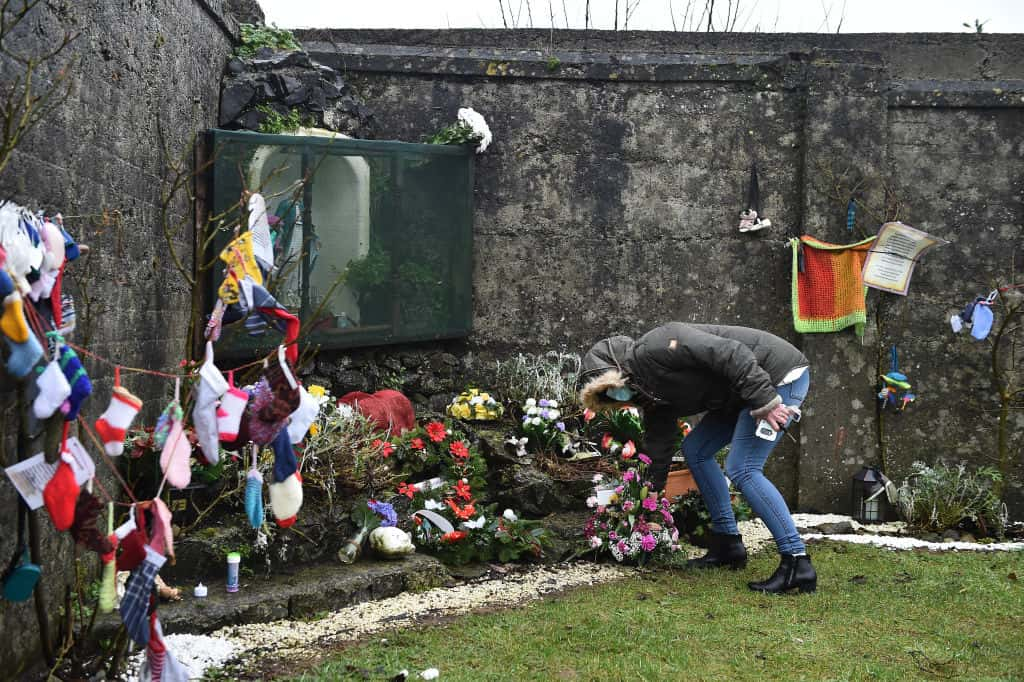Commission lists rape and incest as 'relationship status' options in forms for survivors, sparks outrage

An Irish mother-and-baby home survivor has revealed how the "box-ticking" form filled in after she submitted evidence to the Commission of Investigation into the institution listed "rape" and "incest" under options for "current relationship status."
The woman, who cannot be named for legal reasons, was reportedly sent to Ard Mhuire mother and baby home in Dunboyne, Ireland, in the late 1970s when she became pregnant. She received a copy of the form that was filled in after she had previously submitted a Subject Access Request (SAR) to the Department of Children, according to The Journal.
RELATED ARTICLES
Will The Thacher School shut down? Elite institution apologizes for past sexual abuse
Who is Mary Margaret Kreuper? California nun, 79, to admit to stealing $835K from school funds
The Irish government established the Mother and Baby Homes Commission of Investigation in 2015 to investigate mother and baby homes, which were institutions largely run by Catholic religious nuns where unwed women were sent to deliver their babies. The commission was set up following complaints that the bodies of up to 800 babies and children may have been interred in an unmarked mass grave in the Bon Secours Mother and Baby Home, located in Tuam, County Galway.

Individuals have the right to request a copy of any personal data processed by an organization under Article 15 of the General Data Protection Regulation (GDPR). Now in her 60s, the woman in question reportedly wanted to keep her child but was forced to give them up for adoption in the early 1980s.
She went on to have several children, and one of her daughters had accompanied her while she gave evidence to the Commission’s Confidential Committee in 2015.
Speaking to The Journal, the woman's daughter said that the form was filled in months after her mother filed her testimony. She said that it was “littered with inaccuracies” and “in no way captures the actual events or my mother’s story or suffering."
The daughter, who spoke on condition of anonymity, said her mother was very disturbed to see that "rape" and "incest" were among the boxes to check while noting her current relationship status. She believes it may have been a "copy and paste" error, but said it's "incomprehensible” that options such as rape, incest, extra-marital and casual encounter are included under ‘current relationship status’ without any uproar or outrage.
#MotherAndBabyVoices
— Clodagh Finn (@FinnClodagh) June 14, 2021
The person/people who thought it appropriate to list 'rape' and 'incest' as a relationship status in the tick-box forms given to survivors by the Mother and Baby Homes Commission must explain that insensitive and deeply offensive act.@rodericogorman pic.twitter.com/UuK51e9EPz
“Also, it shows they never expected this to get into the public domain. In what world is rape or incest a relationship status?” the daughter asked, speaking on behalf of her mother. She said the form was "clearly not fit for purpose” and that it was "impossible to truly capture the witnesses’ testimonies in any sense."
The mother-daughter duo have “serious questions” about how and when the form was filled out. The daughter claimed that it had failed to include much of what her mother had submitted as evidence. “We were talking for at least an hour before there was any mention of needing to tape [the conversation],” she told The Journal. “There was no right to review or correct this document, or her testimony, before it became part of the official record. Surely a right to reply or a follow-up was essential to ensure the record was correct?
Rape and Incest are brutal crimes
— Vanessanelle (@akaFrillyKeane) June 13, 2021
This Country is 🤬ed if this is allowed be categorised under 'relationship' status or types
and treated as a 'norm'
Like something on a census form
Our humanity is being raped ffs#MotherAndBabyHomes
“Everyone else was given a right to reply – why weren’t the survivors?” she asked.
According to the Journal, sixty-four survivors gave evidence to the Investigation Committee and 36 provided sworn affidavits. Meanwhile, hundreds of survivors submitted evidence via the Confidential Committee. Only 19 people directly applied to the Investigation Committee to file evidence, and it's unclear how the other witnesses were chosen, per the report.
Having said that, there have been several complaints against the commission’s final report ever since it was published in January. Many survivors questioned conclusions that stated there was a lack of evidence of forced adoption, abuse, and discrimination, despite testimonies contradicting this. Meanwhile, some have claimed their testimonies were amended or misrepresented.










